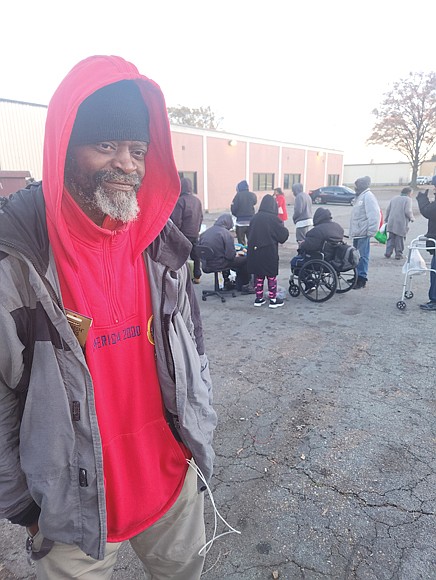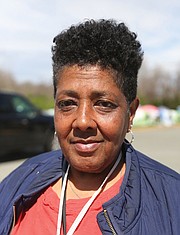Open for needy
Shelter options few for adults with children despite increase in beds
Jeremy M. Lazarus | 12/7/2023, 6 p.m.

City Hall has followed through on expanding winter shelter in the Richmond area, but families with children still are being left out in the cold, the Free Press has confirmed.
Operators on Richmond’s Homeless Crisis Hotline are advising homeless adults with children that all shelter space reserved for them is full and that they should call back weekly to see if there is an opening.
Rhonda Sneed, founder and leader of the homeless services group Blessing Warriors RVA, is aghast at this situation.
“That means babies, toddlers, school-age children remain without shelter,” she said Wednesday in calling on Mayor Levar M. Stoney and his administration to address the problem.
Ms. Sneed noted that since Dec. 1, the Salvation Army has operated a city-supported 150-bed shelter for single adults at 1900 Chamberlayne Ave., with 110 beds for men and 40 for women. However, no children are allowed.
In Ms. Sneed’s view, that sends a message that City Hall is more willing to shelter “able-bodied men and women” when the temperature is below 40 degrees, but “babies and children don’t matter.”
Along with funding Salvation Army’s shelter, the Stoney administration also is providing funding that allowed the nonprofit Home Again to simultaneously open last Friday a 50-bed shelter for adults with children at 7 N. 2nd St.
But the Homeless Crisis Hotline reported that space is full and that there are no other options.
The 200 new beds the city is funding do represent a 40% increase in winter shelter beds in Richmond and add to the 284 existing beds the city has reported that nonprofits and other government agencies separately operate.
“As I’ve said many times before, there is no lack of compassion from the city, but there is, at times, a lack of capacity,”
Mayor Levar M. Stoney said in announcing the expansion in shelter beds. “Today, we are expanding that capacity.”
Third District City Councilwoman Ann-Frances Lambert, whose district includes the Chamberlayne Avenue location, said the Salvation Army “stands as a testament to our shared values and our dedication to ensuring the well-being of every member of our community.”
However, the Stoney administration has made it clear that compassion and dedication extend only so far.
As part of opening the new spaces, the city shut down a 100-bed shelter it had operated at 730 E. Broad St., while the Salvation Army also closed the 51-bed shelter it operated at 2 W. Grace St.
Traci Deshazor, the city’s deputy chief administrative officer for human services, acknowledged that the demand from the homeless could exceed supply of shelter beds through the winter.
But Ms. Deshazor was emphatic that the city would not open any additional shelter space. Once these and other shelters were filled, the remaining unsheltered would have to fend for themselves whether there are children with them or not, she indicated.
Ms. Sneed, who leads a team out nightly to provide food and clothing to the unsheltered, reports finding adults with children sleeping in vehicles or in makeshift shelters.
She does not cite any numbers, but evictions and other emergency situations have increased the number of unsheltered.
Many do find indoor space with relatives and friends. A city report on homelessness cited data that 2,000 or more children are bunking with friends or other parties after their parents lose their housing.
The Stoney administration and previous administrations have focused more on providing shelter for single individuals.
In operating the temporary shelter at 730 E. Broad St. before it closed, there was space for five adults with children compared to 65 beds for single men and 30 for single women.
Both last year and this year, the city opened, with no objection from the council, far fewer beds for adults with children, based on data that the largest number of unsheltered people are single adults.
Richmond resident Michael G.L. Dutz noted in a Facebook comment, “Sadly and unfortunately, people are going to have to perish” before there will be heightened concern about the lack of shelter for children.







